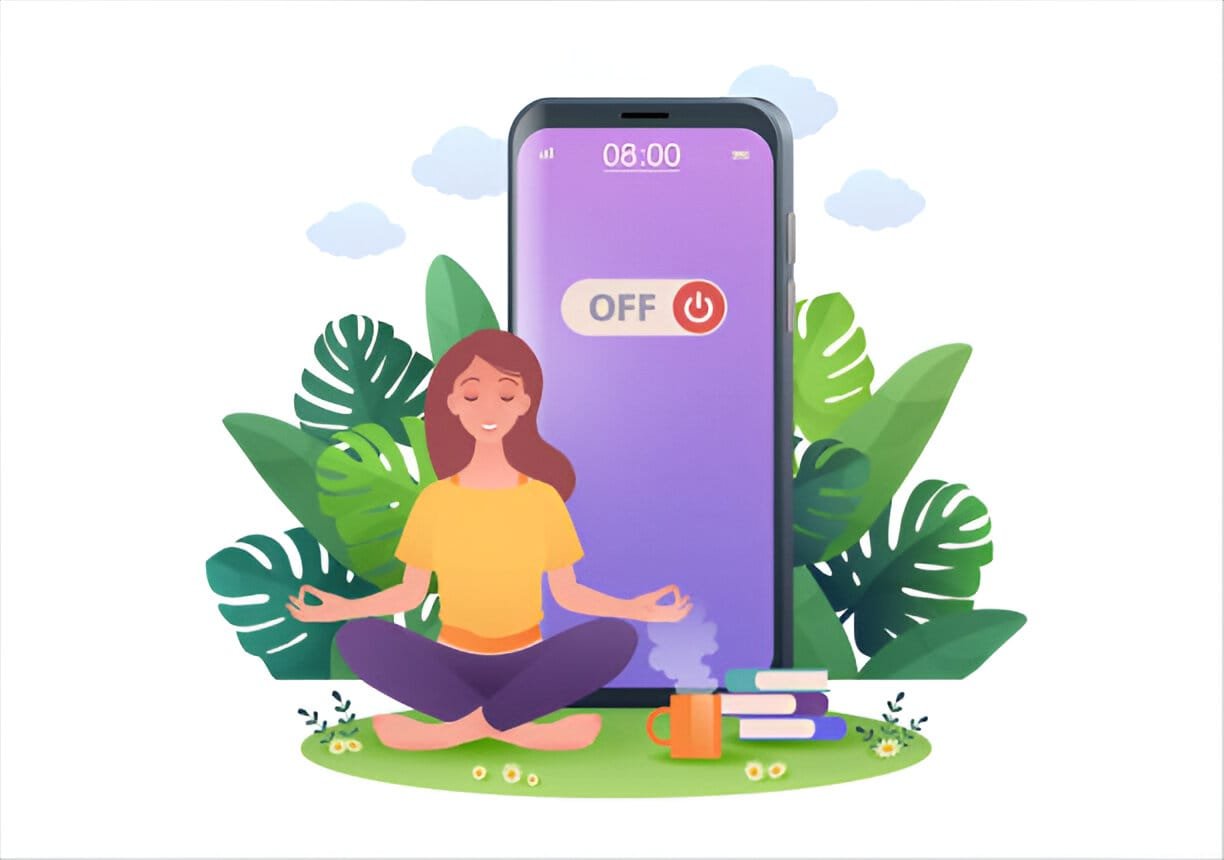Cardiac Care, Lifestyle Changes

In the modern age of incessant technological advancements, our lives have become deeply immersed in the digital landscape. From the moment we wake up to the time we lay our heads to rest, we are surrounded by screens, notifications, and an unending stream of information. While these advancements have undoubtedly brought convenience and connectivity, They have also blurred the lines between work and personal life. This has led to a phenomenon known as digital overload, where individuals find themselves overwhelmed by a continuous stream of emails, messages, and social media updates. This constant influx of information and the perceived need to be always available can create a perpetual state of stress, contributing to elevated stress levels and ultimately impacting heart health.
Stress is a natural response to life’s challenges, triggering the body’s fight-or-flight mechanism. However, when stress becomes chronic and unmanaged, it can have dire consequences for our cardiovascular system. Chronic stress elevates blood pressure, increases heart rate, and prompts the release of stress hormones like cortisol. Over time, these physiological responses can contribute to the development of hypertension, atherosclerosis, and an increased risk of heart disease.
This is where the concept of a “digital detox” emerges as a powerful strategy for managing stress and safeguarding heart health.
A digital detox involves intentionally disconnecting from digital devices and platforms for a designated period. This can range from a few hours to several days, allowing individuals to recalibrate their relationship with technology and reduce the stress associated with digital overload. The goal of a digital detox is to create space for relaxation, mindfulness, and reconnection with activities that promote well-being.
1.Reduced Stress: By disconnecting from the constant barrage of digital information, individuals can experience a significant reduction in stress levels. This, in turn, helps to lower blood pressure, decrease heart rate, and mitigate the release of stress hormones.
2. Improved Sleep: Excessive screen time, especially before bedtime, can disrupt sleep patterns due to the blue light emitted by screens and the cognitive stimulation from digital content. A digital detox helps to establish healthy sleep habits, which are essential for heart health.
3. Enhanced Physical Activity: Digital devices often contribute to a sedentary lifestyle. Detaching from screens encourages physical activity and outdoor engagement, both of which are crucial for maintaining a healthy heart.
4. Mindfulness and Relaxation: Digital detoxes provide an opportunity for individuals to engage in mindfulness practices, such as meditation and deep breathing. These practices have been shown to reduce stress, promote relaxation, and positively impact heart health.
5. Strengthened Social Connections: While digital technology has enabled virtual connections, it has led to a decline in meaningful face-to-face interactions. A digital detox encourages individuals to engage in real-world social interactions, fostering emotional well-being and heart health.
1. Set Boundaries: Establish designated times when you disconnect from digital devices, especially during meals and before sleep.
2. Create Device-Free Zones: Designate certain areas in your home, such as the bedroom, as technology-free zones to promote better sleep and relaxation.
3. Practice Mindful Consumption: Be intentional about the content you consume online. Unfollow accounts or platforms that contribute to stress and negativity.
4. Engage in Outdoor Activities: Spend time outdoors without the distraction of screens. This can range from a leisurely walk to more adventurous activities like hiking or biking.
5. Prioritize Real-World Connections: Nurture in-person relationships by scheduling regular social activities with friends and family.

In the pursuit of holistic well-being, it’s imperative to recognize the impact of digital stress on heart health. By embracing the concept of a digital detox and consciously disconnecting from technology, individuals can foster resilience against the harmful effects of chronic stress. As we navigate the digital landscape, let us remember that a healthier heart lies not just in the latest medical advancements, but also in the deliberate choices we make to unplug, unwind, and reconnect with life beyond the screen.